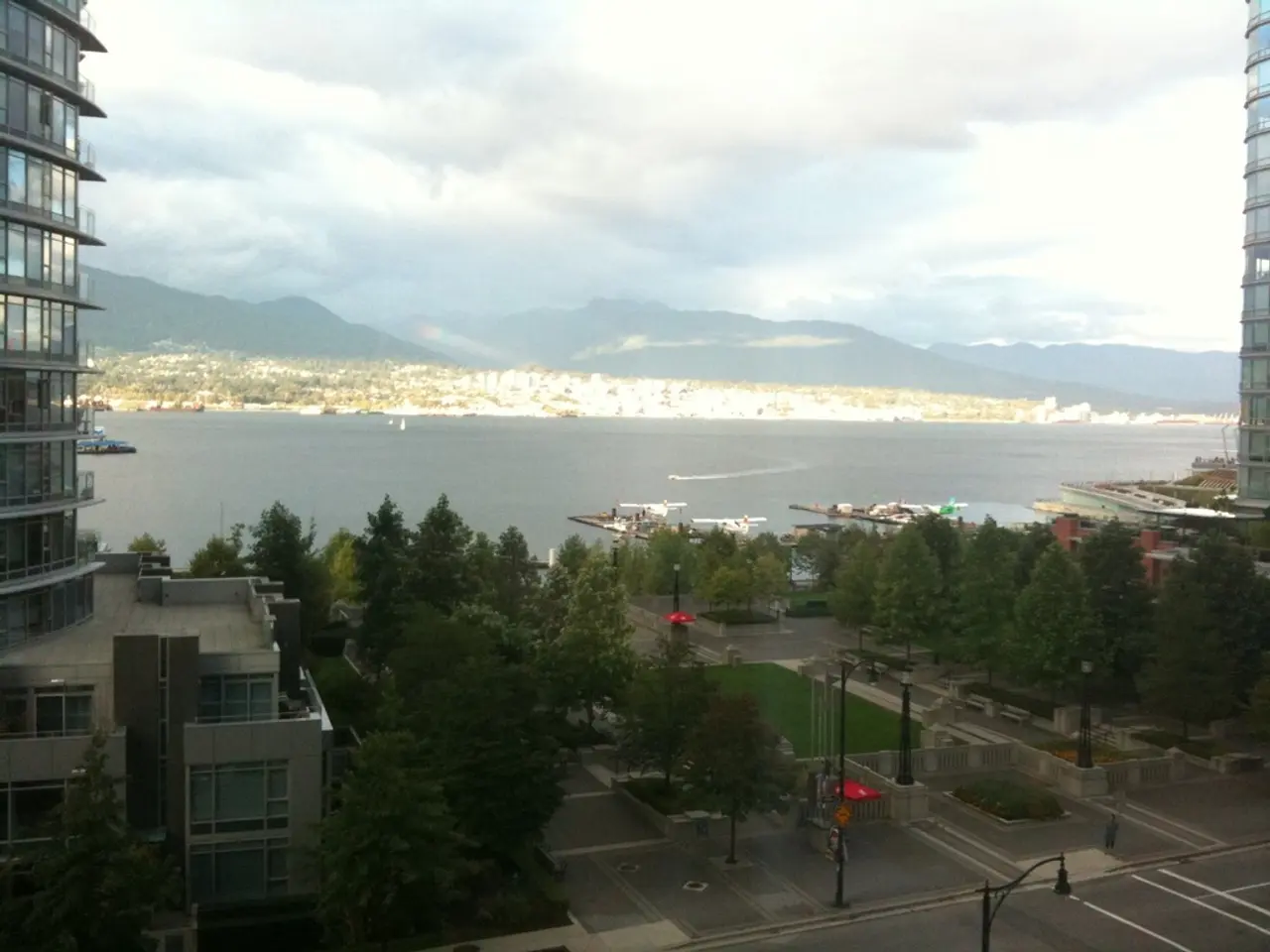Unlawful lodging establishment in Anapa demolished
Illegal Hotel Demolished in Anapa's Coastal Strip
In a significant move towards enforcing construction regulations, bailiffs successfully demolished an illegally built three-story hotel in Anapa, Russia. The hotel, situated just 100 meters from the sea and on the sandy dunes of the beach, was a commercial attraction that violated multiple regulations.
The hotel's location in the coastal strip of Anapa was found to be in breach of the regulations of the first zone of the resort's sanitary protection. Its construction also contravened both construction and environmental legislation. The construction of the hotel was ruled illegal by the Arbitration Court of Krasnodar Krai in 2022.
Sergei Anokhin, Deputy Head of the Legal Department's Judicial Protection Division in the City of Anapa's Administration, made a statement about the illegal hotel.
The city administration in Anapa, along with their counterparts in Sochi, have been working diligently to prevent illegal construction in their resort zones. This year alone, around 40 self-built structures have been demolished in Anapa, including the unsightly and potentially unsafe hotel in question.
Common issues of illegal construction in resort zones like Anapa and Sochi include exceeding official authority, forged documents, unauthorized use of land, and construction without proper environmental or legal clearances. These activities are often linked to corruption among officials and the use of front companies to bypass regulations.
The consequences of such illegal construction can be severe. They include legal actions and prosecutions of officials, environmental damage, loss of public trust and administrative credibility, and economic consequences. In Russia, for example, former Vice-Governor Alexander Bogashov and regional officials faced investigations and arrests related to illegal construction of a health and leisure complex, which involved fabricated documents and misuse of authority.
Illegal constructions in resort zones can encroach on protected or sensitive areas, threatening ecosystems, reducing green zones, and disrupting natural landscapes. This issue is particularly relevant in areas like Anapa and Sochi, which depend heavily on their natural beauty and environmental health for tourism.
In summary, the issues involve corruption, misuse of authority, environmental violations, and the consequences extend to legal crackdowns, environmental harm, and governance failures. The recent demolition of the illegal hotel in Anapa serves as a reminder of the importance of enforcing construction regulations and maintaining the integrity of Russia's resort zones.
- The hotel's location in the coastal strip of Anapa, while attractive for business and real-estate interests, contravened both construction and environmental legislation, highlighting the importance of adhering to rules in scientific and environmental-science fields.
- In an attempt to combat illegal construction, officials in both Anapa and Sochi have been investigating cases involving corruption, forged documents, unauthorized use of land, and construction without proper environmental or legal clearances, shedding light on the role of finance and investing in such illegal activities.
- The demolition of the illegal hotel not only imposed economic consequences on the involved individuals but also served as a step towards protecting the environment, emphasizing the need for strict regulations in the business sector.
- Illegal constructions in resort zones like Anapa and Sochi can have severe consequences,leading to environmental damage, loss of public trust, and administrative credibility, demonstrating the interconnectedness of the science, industry, and environmental-science fields.




